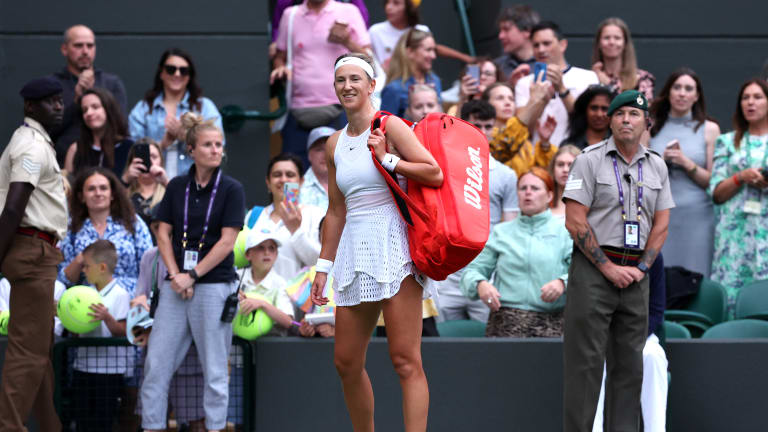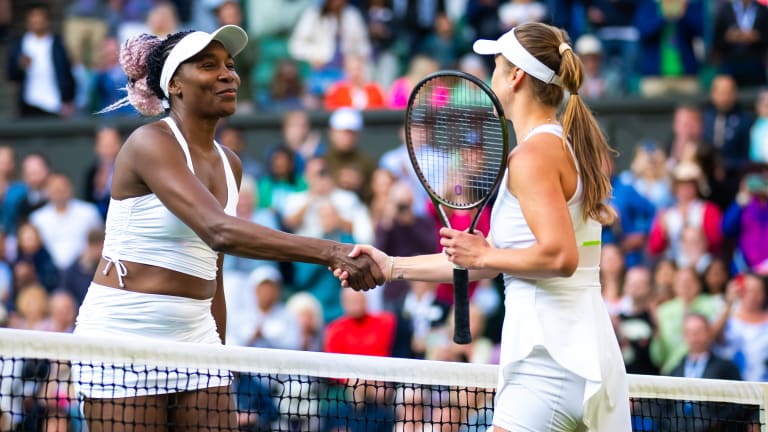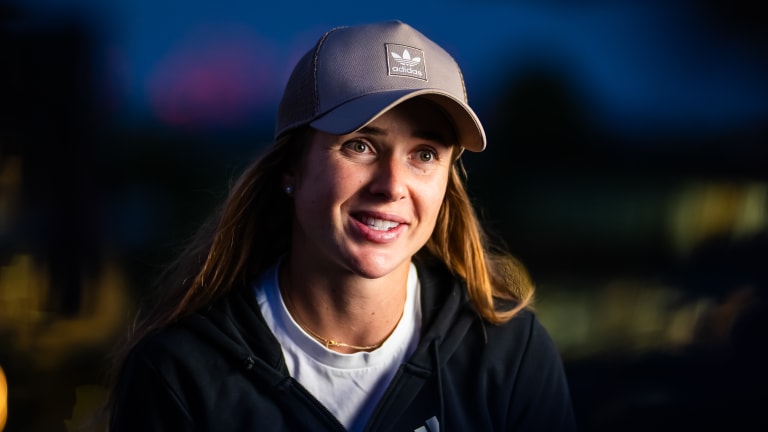They Said What?
Elina Svitolina and the power of the handshake
By Jul 12, 2023They Said What?
'Big Brother' is watching ... tennis: Many eyes, in many ways, are on the sport in 2025
By Feb 13, 2025They Said What?
“There’s nothing wrong with not being Novak”: Sloane Stephens gets candid on Tennis Insider Club podcast
By Oct 21, 2024They Said What?
"New Heights" with Stefanos Tsitsipas
By May 15, 2024They Said What?
A Class Act, Easily Ignored: Kudos to Ons Jabeur
By May 06, 2024They Said What?
Luca Nardi defeats Novak Djokovic: Teachable moments from a stunning upset
By Mar 12, 2024They Said What?
Are we witnessing a new Daniil Medvedev?
By Jan 25, 2024They Said What?
Dayana Yastremska's racquet is doing the talking at the Australian Open
By Jan 22, 2024They Said What?
Deciding when to retire is a unique case for tennis players. Just ask Andy Murray
By Jan 18, 2024They Said What?
Roger Federer may not be tennis' GOAT, but as Rafael Nadal articulated, he's a 1 of 1
By Jan 06, 2024They Said What?
Elina Svitolina and the power of the handshake
The most potent weapon in Ukraine’s battle to win hearts and minds has been Svitolina herself.
Published Jul 12, 2023
Advertising
Advertising

It was a great tennis match between Azarenka and Svitolina, with the Ukrainian winning 2-6, 6-4, 7-6 (9). But that’s not all it was.
© Getty Images
Advertising

Svitolina's refusal to shake hands with players from Russia or Belarus pushed the WTA to issue a supporting statement.
© 2023 Robert Prange
Advertising

Svitolina has emerged as as a true heroine and her remarkable journey these past 10 days may end up with a battle for the trophy with Belarus’ Aryna Sabalenka.
© 2023 Robert Prange